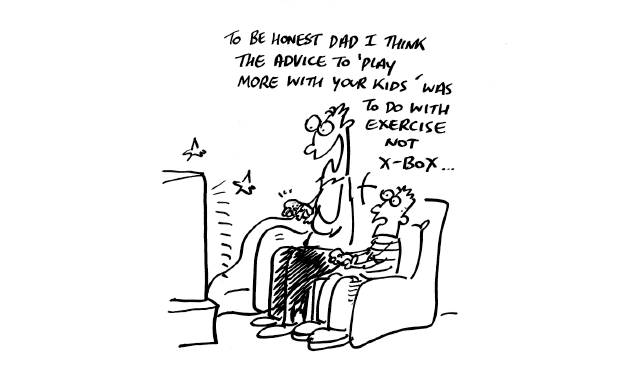Exercise FAQs

Don’t underestimate it. If exercise were a drug, we’d all want to take it. Exercise boosts physical and mental wellbeing and helps you live longer.
Scientists now reckon being inactive is even more of a health risk than being overweight.
How does activity improve health?
People who do regular physical activity have a 35% lower risk of heart disease and stroke and a 50% lower risk of diabetes and of bowel cancer.
Regular exercisers also have a far lower risk of osteoarthritis and hip fracture.
Best of all, exercise feels good. It boosts feel-good chemicals that raise self-esteem and helps sleep and concentration.
Regular exercisers have a 30% lower risk of depression and of dementia.
What does ‘regular physical activity’ mean?
To get the full benefit, the NHS reckons you need 150 minutes a week of moderate-intensity aerobic exercise. This means exercise that makes you slightly breathless - fast walking, cycling, jogging, mowing the lawn, swimming, playing sport. The statistics on page 17 about the benefits of exercise are based on these sorts of exercise levels.
And, if your exercise goal is to lose weight, you probably need to do more than this.
But - and it’s a very big but - anything is better than nothing.
Try walking. Walking reduces the risk of heart disease by a third. The further and faster you walk the better but even walking just 5-6 miles a week at a very slow pace (2 miles per hour) will help reduce risk. Little and often is fine.
Get a pedometer to count your steps. If you want a target, aim for 10,000 steps a day.
Stretching and strengthening muscle is also important. Again, this doesn’t have to be vigorous. Yoga is fine.
Do I need to lose weight?
Being overweight increases your risk of heart disease, stroke, diabetes and some types of cancer. Next year in England and Wales alone around 50,000 deaths will be down to excess weight.
So get the tape measure out. As a man, you have a:
- HIGHER risk of health problems if your waist size is more than 94cm (37 inches) and an
- EVEN HIGHER risk if your waist size is more than 102cm (40 inches)
I haven’t got time.
Build exercise into your everyday life:
- Get off the bus/train/tram a stop or
- two early
- Park the car and walk
- Cycle instead
- Use the stairs
- Exercise in your lunch-break
- Exercise at home or in the park - you don’t need to go to a gym
- Play more with your kids
- Get into housework and gardening
- Walk and talk (on the phone or with colleagues).
Can work help? Some employers have a gym or offer gym membership or cycle-to-work schemes.
Combine exercise with your social life by joining a gym, club or team. Increasingly, there are sports opportunities for people of all ages and abilities. But make sure you’re fit enough to avoid injury.
I haven’t exercised for years.
Take it easy. Often new exercisers find that their heart and lungs rise to the challenge quicker than the skeleton and muscles. Result: they get injured (and give up).
When you start over, the only thing you really need to focus on is not getting injured. Warm up properly, build up slowly and don’t do more today than you will be able to do tomorrow.
So start with a nice walk.
Where can I find out more?
Read our Fitness FAQs for more on walking, jogging and other easy forms of activity.
We don't currently post comments online but are always keen to hear your feedback.
| This content is wholly based on the Men's Health Forum's The Man Manual which was prepared in line with the NHS England Information Standard of which the MHF is a member. Follow the links for more information or to buy copies. |
Date published
19/06/15
Date of last review
30/04/15
Date of next review
30/04/18
|
The Men’s Health Forum need your support It’s tough for men to ask for help but if you don’t ask when you need it, things generally only get worse. So we’re asking. In the UK, one man in five dies before the age of 65. If we had health policies and services that better reflected the needs of the whole population, it might not be like that. But it is. Policies and services and indeed men have been like this for a long time and they don’t change overnight just because we want them to. It’s true that the UK’s men don’t have it bad compared to some other groups. We’re not asking you to ‘feel sorry’ for men or put them first. We’re talking here about something more complicated, something that falls outside the traditional charity fund-raising model of ‘doing something for those less fortunate than ourselves’. That model raises money but it seldom changes much. We’re talking about changing the way we look at the world. There is nothing inevitable about premature male death. Services accessible to all, a population better informed. These would benefit everyone - rich and poor, young and old, male and female - and that’s what we’re campaigning for. We’re not asking you to look at images of pity, we’re just asking you to look around at the society you live in, at the men you know and at the families with sons, fathers and grandads missing. Here’s our fund-raising page - please chip in if you can. |


